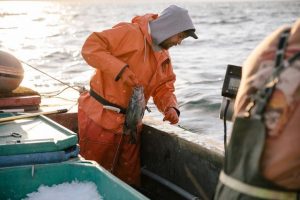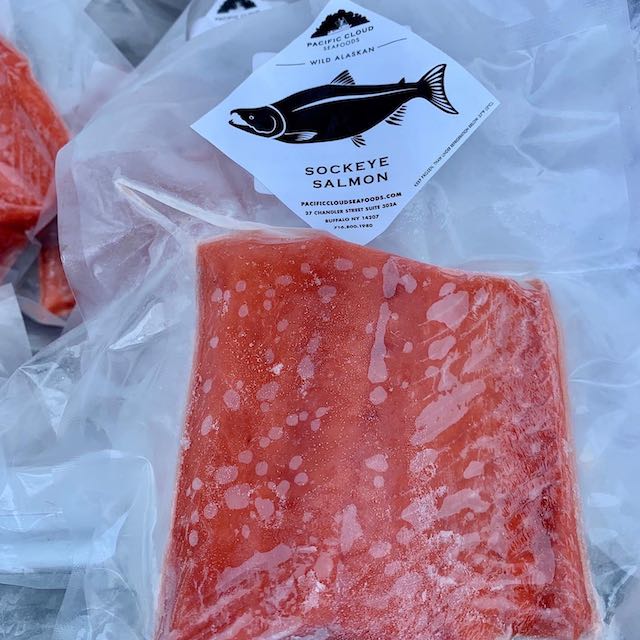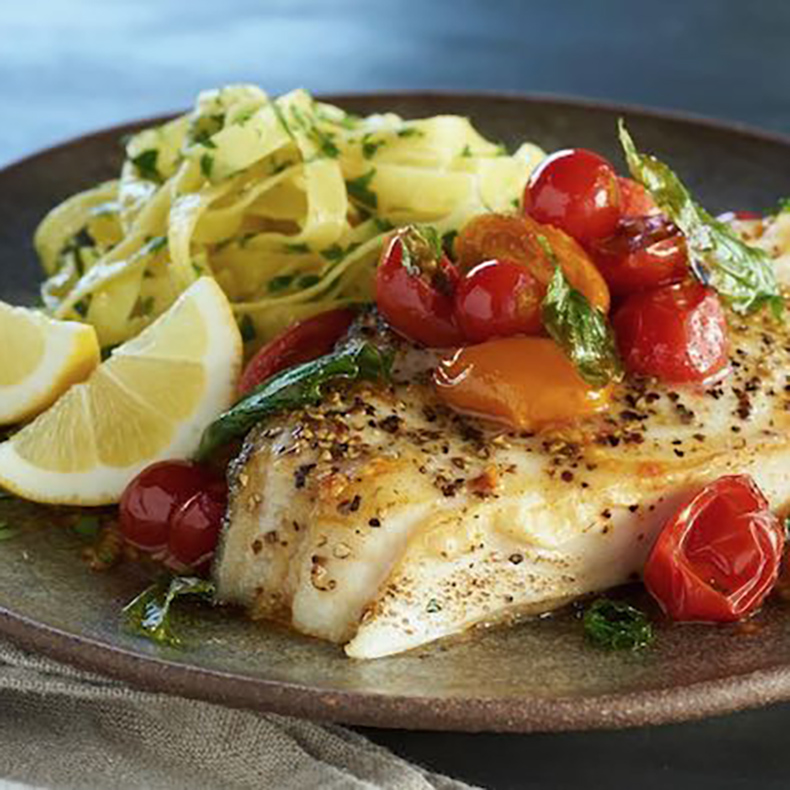Pacific Cloud Brings Quality, Sustainable Seafood to Buffalo
You never know who you might meet at one of Buffalo’s many farmer’s and maker’s markets. A stop at the Chandler Street Market on a Sunday morning provided the opportunity to buy some fresh caught salmon and hear the remarkable story of Ryan Horwath and his company Pacific Cloud Seafood. Ryan is on a mission to bring sustainably-caught seafood to consumers in the Buffalo area. He’s a fisherman and entrepreneur who wants to change the way fish are caught and consumed. Here’s what he had to say about his business and how he found his way to Buffalo and Chandler Street.
For more information, visit pacificcloudseafoods.com.
This interview was conducted via email and has been edited for length.
Visit Buffalo Niagara: You’re from Rochester, spend much of your time in Alaska, and source your product from around the world, yet you now in live in Buffalo and have chosen to base your business here; I guess the obvious question is, why Buffalo?
Ryan Horwath: My partner and I both believe Buffalo is the best place to raise a family and grow our businesses. She has owned and operated a business in the downtown area for several years, and when I decided to move back to New York from Alaska, I thought, what better place to be than in Buffalo. The community has been very welcoming. I love the enthusiasm I see at the farmer’s markets, the support for small business owners, local pride, and acceptance of diversity and innovation.
VBN: Why fishing? Like farming, it seems like a pretty tough way to earn a living.
RH: I love the romance involved in the lifestyle. Being out on the water, away from the city, is good for the soul. I also enjoy the push for self-sufficiency. Before I moved to Alaska, I didn’t know how to change the oil in my car. Seventeen years later and I’ve had to repair all of the systems on a fishing vessel. It is a mentally and physically demanding profession, no doubt, but with that comes an unmatched satisfaction in any other industry I’ve been a part of.
VBN: What market opportunity did you perceive that made you decide that a business delivering fresh seafood to consumers in a non-traditional way was a potentially successful business model?
RH: I’ve always wanted to deliver a fish to a customer who appreciates the extra care we take on board to ensure quality. There is nothing more frustrating than doing all the things fishing requires, and to deliver a premium product and watch it get mixed in with all the other fish from hundreds of boats who focus on quantity over quality. We consider ourselves a CSF or Community Supported Fishery. Thanks to increasing cell phone service and technology, fishermen in Alaska can connect directly with consumers. Never before has direct connections been this accessible. Covid-19 has exacerbated the current large-scale industrial food system issues and shown us that resiliency in the food system is more important than ever.
VBN: Your website describes your business as a values-based seafood company. Can you explain what that means?
RH: Values-based refers, in my mind, to not being solely profit-driven. Our company needs to succeed in the current economic system. Still, we believe that we can do it in a way that offers harvesters a fair wage, increases our employees’ well-being and pays attention to the delicate balance of nature.
VBN: How much education needs to be done with consumers to make them aware of the challenges facing the oceans and the worldwide fishery in order to make them more discerning consumers?
RH: Environmental concerns are an ever-evolving issue. The business’s core mission is to educate consumers on the importance of asking where their fish came from and if somebody harvested it in an environmentally conscious way.
VBN: It sounds like you are also on a mission to play an active part in making commercial fishing more environmentally aware and less damaging to the environment; how do you create a business that does no harm to the environment yet still harvest and ship a finite resource from the ocean surrounding Alaska?
RH: The science-based management of the ocean has proven to be sustainable. Oceana estimates it can feed one billion people seafood every day. Sound management has been instrumental in the rebounding of multiple stocks around the world. Alaska’s management is revered around the world for its sustainability. No fisherman wants to catch the last fish. We want to keep harvesting and providing the food we love to our friends and family and leave behind a long-term way to make a living in a noble profession.
VBN: What has the response been to your business so far?
RH: From the small group of people that have tried our products, we have had a warm welcome. The most common thing I hear is: people don’t want to support the big guys. They seem to understand the value of many small businesses versus fewer larger companies supplying most of our food.
VBN: You are re-launching your business in the midst of a worldwide pandemic. How much tougher has the virus and public health policy and protocols related to it made getting your business off the ground?
RH: Social distancing mandates and stay at home orders have helped our business. People have been looking for alternatives to the grocery store and a way to help small, local businesses. We have a safe product that can be distributed in a contactless way without compromising our customers’ safety or the product’s integrity. Educating consumers about the benefits of frozen products is always a challenge. Freezing technology has come a long way in the last 20 years. Blast freezing keeps products fresh-tasting for over a year.
VBN: Why did you choose to base your operations on Chandler Street? How do you like being a part of this emerging neighborhood?
RH: We love being a part of the rebuilding of Buffalo. I met the developer at the Elmwood/Bidwell market last year, and he told me about the project. I was initially impressed and thought it was too good to be true. When they opened, we were one of the first ones to move in. Having a space shared by other artisanal food producers has presented us with collaboration opportunities we are excited to explore. The tenants of the buildings are working to collaborate on specialty meals and products.






